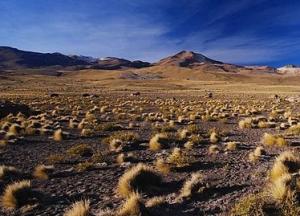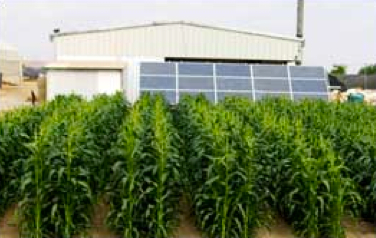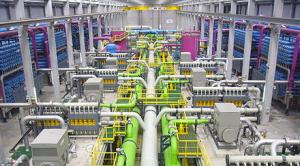
Deserts get little or no rainfall, but often there are aquifers deep below the surface that hold rivers of salty water. The problem: economically getting the salt out of this brackish water so that it can be used by poor farmers in developing countries.
Researchers in Israel, which is very arid but also famous for creating some of the world's most promising desalination technologies, are now testing a desert "oasis" technology at a quarter-acre test site south of the Dead Sea, using a unique solar-powered nanofiltration system.
Results have been very promising
The goal was to help feed the world's hungry, said Rami Messalem from Ben-Gurion University's Zuckerberg Institute for Water Research. Messalem said his new filter is unique because it runs on a quarter of the power that reverse osmosis desalination

units require.
Rami Messalem explained that, "Our system is compatible with (grid) electricity but is based on the premise that it can be used in poor countries, in places where you don't have an electricity source - as a standalone system."
Nano-filtration has another benefit. While churning out irrigation water, it allows farmers to decide which minerals should stay in the water and which should be removed. Normally, reverse osmosis, usually used in much larger plants, removes all minerals, which must then be replenished, depending on the

crop.
"Reverse osmosis is based on membranes, and in this case we are using nanofilters, which perform 'loose' reverse osmosis," says Messalem. "There is no use to try and compete with huge companies who make the best membrane which can do the right job. It's very easy to make these kinds of filters and put them out into the market," Messalem told ISRAEL21c.
At the test site, the experimental results have been very encouraging. "Oasis" nano-filteration enables farmers to use 25% less water and fertilizer than usual. The solar-powered model oasis is also sustaining four different crops, and each system could be customized to a farmer's different crops and energy availability.
The pilot plant is ready to scale up, says Messalem. He's selected a 2.5-acre site that will serve as a bigger pilot plant as well as a training center for the thousands of people from poor nations who travel to Israel to learn about successful agricultural methods.
This is good news for regions in the Middle East and Africa where micro-farmers are losing ground to desertification.



Comments
The technology does have quite the potential. I'm looking forward to the day they perfect it and we can boost our water supply by turning to new sources such as the oceans.
There are three companies pursuing the same research. The other two are in Australia and Qatar. A nice mini-trend.
Agree. It's encouraging.